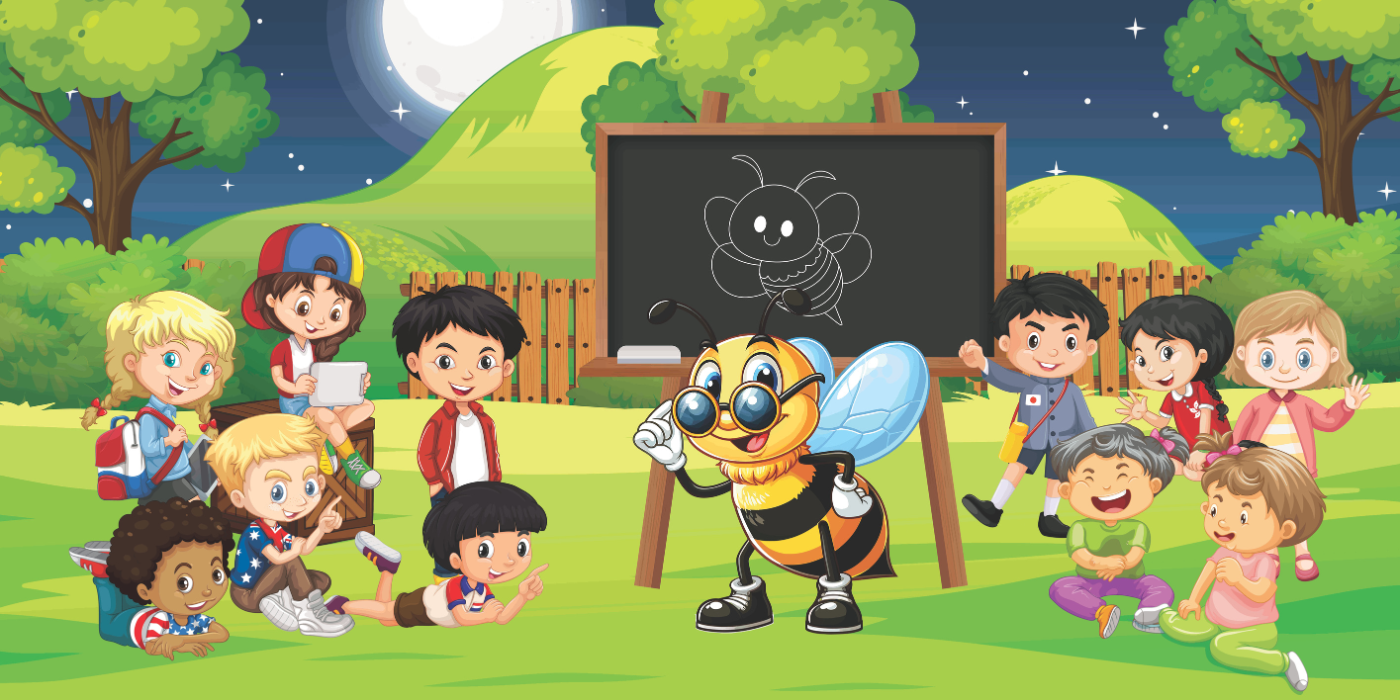
Beekeeping for Kids | Engaging the Next Generation of Beekeepers
Beekeeping is not only an exciting and fulfilling hobby, but it's also an educational activity that helps kids connect with nature, learn about responsibility, and contribute to environmental conservation. Teaching children about bees and how to care for them offers a unique opportunity to foster a love for science and the natural world while helping protect one of the planet's most essential pollinators.
In recent years, the beekeeping community has recognized the importance of involving the next generation in the preservation of bees. As bees face increasing challenges, from habitat loss to the effects of pesticides, it is crucial to raise awareness and inspire young people to take an active role in beekeeping and environmental stewardship.
This newsletter explores the benefits of beekeeping for kids, how to get them involved, and some essential tips to make the experience enjoyable, educational, and safe.
Why Beekeeping is Great for Kids
Beekeeping is a hands-on learning experience that offers a variety of educational benefits. From biology and ecology to environmental conservation, kids gain knowledge across multiple disciplines. By understanding how bees live, work, and contribute to bee pollination, children can develop a deeper respect for these important creatures and the environment as a whole.
Caring for bees teaches kids about responsibility. Bees, like any other living creatures, require regular attention and care. By managing their own hive, children learn how to maintain a balanced and healthy environment for their bees, developing their problem-solving and time-management skills along the way.
Beekeeping fosters a connection between kids and the environment, instilling a sense of stewardship for the natural world. Through beekeeping, kids can witness firsthand how bees contribute to the ecosystem by pollinating plants and helping food crops thrive. This awareness can inspire future generations to take an active role in protecting bees and other pollinators.
Children are naturally curious, and bees are fascinating creatures. Observing their hive's inner workings, understanding their roles in the colony, and learning how they communicate and collaborate sparks curiosity. It can lead to a lifelong appreciation for the wonders of nature.
How to Get Kids Started in Beekeeping
Before diving into beekeeping, it’s essential to teach kids the basics about bees. Explore topics such as the life cycle of bees, the different types of bees in a hive (queen, worker, drone), and their critical role in pollination. There are many kid-friendly books and online resources available that present beekeeping in a fun and accessible way.
Taking your child to visit a local beekeeper or apiary is another great way to introduce them to the world of bees. Seeing bees in action and learning from experienced beekeepers can ignite their interest and curiosity.
Safety should always come first. Make sure your child has the proper beekeeping gear, including a beekeeping suit, gloves, and a veil. These protective items help children feel safe while working with bees, ensuring they enjoy the experience without the fear of being stung.
When shopping for beekeeping gear for kids, look for lightweight suits that fit well and allow for easy movement. There are several companies that offer kid-sized protective clothing, ensuring a comfortable and safe beekeeping experience.
For beginners, it’s best to start with a small hive to make the experience manageable for kids. A Langstroth hive is a popular choice because of its standardized design and ease of use. Additionally, smaller hives allow children to become familiar with hive management before expanding their beekeeping endeavors.
If possible, locate the hive in an area where your child can safely observe and care for the bees. A shaded, quiet space away from high-traffic areas is ideal.
Beekeeping is an activity that can be shared with family members. Make it a collaborative effort where kids can work alongside adults to manage the hive. This shared experience fosters family bonding while encouraging kids to take ownership of their tasks. In addition, beekeeping can offer a platform for ongoing discussions about the importance of bees and nature.
Making Beekeeping Fun for Kids
Kids learn best by doing, so allow them to participate in every step of the process, from assembling the hive to harvesting honey. Make sure to explain each task in a simple and fun way, helping them feel like an integral part of the beekeeping process.
Harvesting honey is one of the most rewarding aspects of beekeeping. Let your kids bottle their own honey, label it, and even share it with family and friends. This not only gives them a sense of accomplishment but also reinforces the connection between caring for the bees and enjoying the fruits of their labor.
There are numerous beekeeping clubs and organizations that offer events for kids. Attending a beekeeping workshop or event is an excellent way for children to meet other young beekeepers, learn new skills, and share their experiences.
Tips for Safe Beekeeping with Kids
Supervise Closely: Always supervise children when they are working with the hive to ensure their safety.
Start Small: Begin with short, easy tasks that keep kids engaged but not overwhelmed. As their confidence grows, they can take on more responsibility.
Choose a Calm Hive: Some bee colonies are more docile than others. Choose bees with a reputation for gentleness to create a positive beekeeping experience.
Beekeeping offers children a unique and engaging way to connect with nature, learn valuable life skills, and contribute to environmental conservation. By starting small, providing proper education, and making the experience hands-on and fun, parents can instill a love for beekeeping in the next generation. With each hive they care for, children are helping to ensure a bright future for bees and the ecosystems they support.



Leave a comment